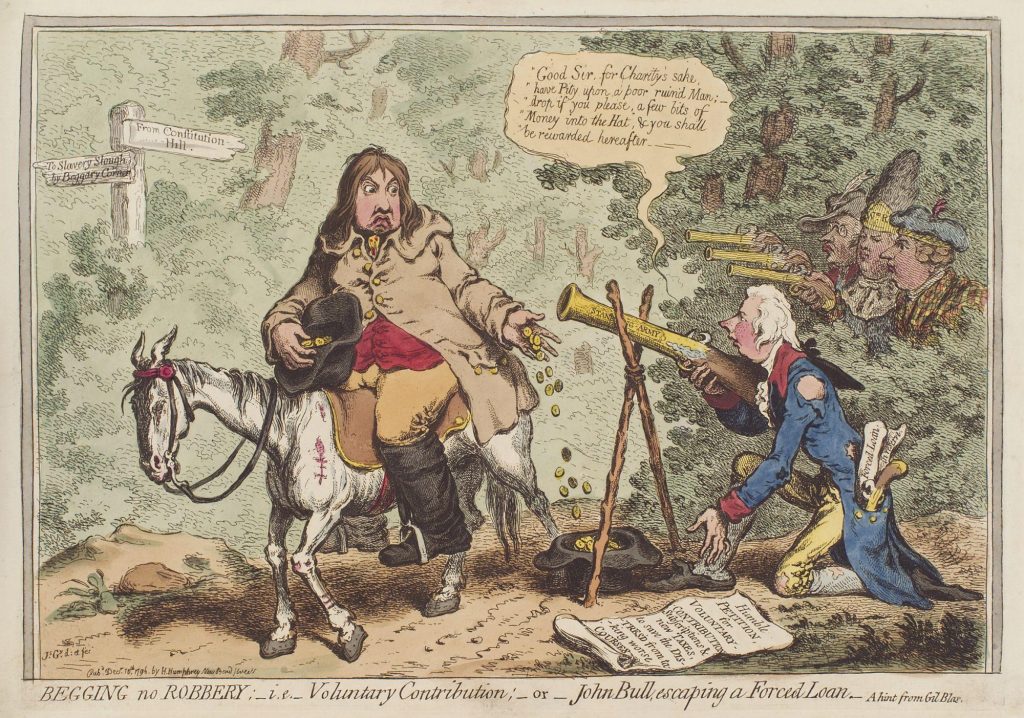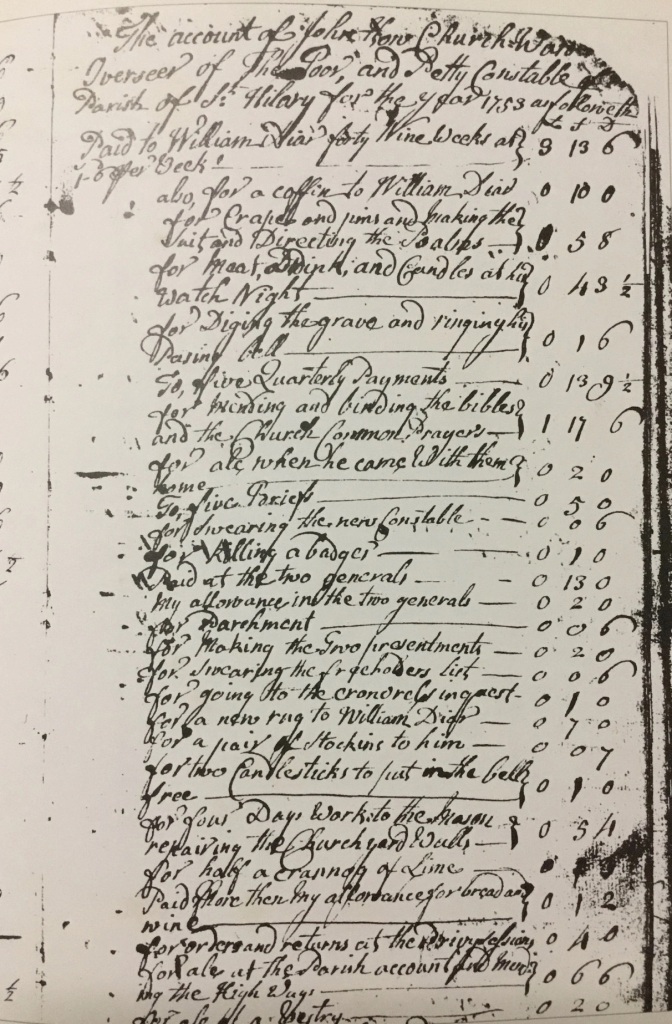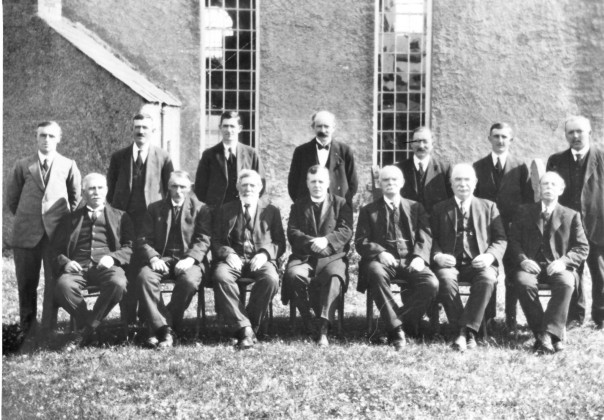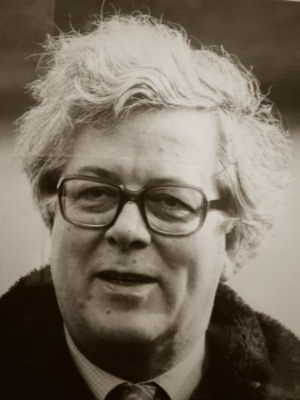I am related to Geoffrey Howe, Baron Howe of Aberavon, CH, PC, QC, the deputy prime minister in Margaret Thatcher’s government, 1989 to 1990. Our mutual ancestor is John Howe of St Hilary, Glamorgan (1786 – 1856) ironically, a thatcher.
By 1799, the Napoleonic wars had taken their toll on Britain. The British royal treasury was running out of money to maintain the army and navy. Soldiers were starving and His Majesty’s navy had already mutinied. For Prime Minister William Pitt the Younger, the solution was simple: impose an income tax. Under the Act of 1799, all citizens who earned above £60 were to pay a graduated tax of at least one percent. Those with an income of over £200 were taxed ten percent. Some people regarded the tax as a patriotic duty while others complained. I don’t know what my 5 x great grandfather John Howe thought of the taxes, but their imposition forced him off the land into employment as a thatcher.
John’s son, Edward, was also a thatcher. However, with his wife Rachel and their five children, Edward moved twenty-two miles west to Aberavon to ply his trade.
The fact that Edward employed a domestic servant suggests that he was successful in his business. However, this success did not influence his son, also Edward, who became a washman in the local tinplate and silver works. This begs the question: how did the grandson of a tinplate worker become a Conservative MP and deputy prime minister? The answer lies in understanding the Howe family and its traits.
In the 1600s and 1700s our ancestors Joseph, John and John Howe were landowners, churchwardens, Petty Constables and Overseers of the Poor, pillars of St Hilary society. In 1797, John the latter paid 2s 6d to ‘ten men in distress coming from the sea’ while in 1753 John the former made a payment of £1 17s 6d for the making and binding of Bibles, 1s for attending a coroner’s inquest and 7d for a pair of male stockings. He also awarded payments of a few pence to ‘the little boy of whom nothing else is known’.
In the 1800s my 2 x great grandfather William Howe was a deacon of the local Methodist chapel and Headman of the village, in effect chairman of the village council, assisting the villagers with community problems and organising local events. Important to note that all these relatives were bilingual and immersed in Welsh culture with its distinctive, community-based, way of life.
For the Howes, a desire to serve the community as public servants ran deep. Geoffrey Howe inherited this trait. But how did he make the leap from the tinplate works to Downing Street? The words of a Labour prime minister, Tony Blair, come to mind, “Education! Education! Education!” Through education, Benjamin Edward Howe, Geoffrey’s father, transformed the family’s fortunes.
The son of Edward Howe and Hannah Evans, Benjamin Edward Howe was born on 3 December 1888 in Margam, Glamorgan, ‘a dirty little town’ according to contemporary chroniclers. That dirt was generated by the heavy industry and blast furnaces that dominated the area during the Victorian era.
In 1901, Benjamin was a scholar living with his parents and older sister Elizabeth. Many industrialists were far-sighted and opened schools in association with their factories. For example, Margam Tinplate Infants School opened in 1850. Benjamin attended the school and excelled in his studies.
Ten years later, aged twenty-two, Benjamin was a law student soon to qualify as a solicitor. From this point, his life moved on apace. On 1 May 1913 he became a member of the United Grand Lodge of Freemasons. In 1923 he married Eliza Florence Thompson and three years later the couple produced a son, Geoffrey. By 1939 Benjamin had established himself as a solicitor and the Coroner for West Glamorgan. His sister, Elizabeth, had also done well for herself; she was a headmistress.
During the Second World War, Eliza upheld the family’s sense of civic duty by performing the role of Central Leader for Women Services for Civil Defence. Meanwhile, Geoffrey attended Abberley Hall School in Worcestershire, a co-educational preparatory day and boarding school teaching 150 pupils. The actor Sir Anthony Quayle and the author Antony Beevor also attended this school.
Benjamin died on 27 July 1958. In his will he left the equivalent of £252,000 in today’s money. By this time Geoffrey had married Elspeth Shand and established himself as a barrister-at-law.
As a child in the late 1970s I met Geoffrey Howe at a family gathering, a christening. In all truth, I have no memory of that event. I do recall that later, in the 1980s, whenever Geoffrey Howe appeared on television a member of the family, usually my father, would remind us that he was a relative, a ‘cousin’, the catch-all description for any relative who lived outside our immediate household.
In the Victorian era and early twentieth century the Howes were Liberals, supporting the local candidates. That support drifted further left as the Labour Party and its ideas took a firm grip on the South Wales Valleys. Therefore, in family terms, Geoffrey was an outsider.
Many members of my family hated Margaret Thatcher because of the destruction she wrought on the Valleys, particularly the mining communities. However, they always maintained their respect for Geoffrey believing him to be a man of honour and principle. As events transpired with Geoffrey’s resignation on 1 November 1990 triggering Margaret Thatcher’s resignation three weeks later that family loyalty and belief were not misplaced.
I wonder what Geoffrey would make of Boris Johnson and his government. I sense that he would detest the man and all he stands for. Furthermore, he would not recognise the Johnson government as a Conservative administration.
Geoffrey Howe was Margaret Thatcher’s longest-serving cabinet minister, holding the posts of Chancellor of the Exchequer, Foreign Secretary, Leader of the House of Commons, Deputy Prime Minister and Lord President of the Council. In many ways, he embodied 400 years of Howe history.
Obituarists stated that Geoffrey Howe was ‘warm and well liked by colleagues’ and was ‘one of the kindest and nicest men in politics’. While Andrew Rawnsley of The Observer noted that fellow politicians regarded Geoffrey Howe as ‘one of the most honest and decent practitioners of their profession.’
I have never voted Tory and cannot envisage a situation where I would vote Tory. Nevertheless, I am proud to regard Geoffrey Howe as an ancestor.





